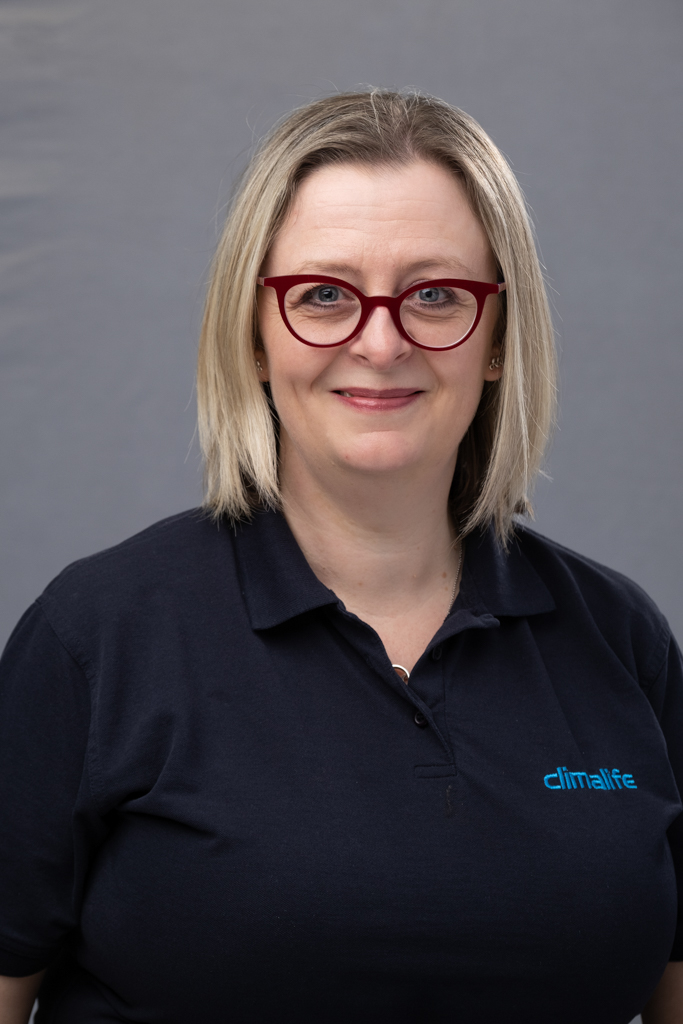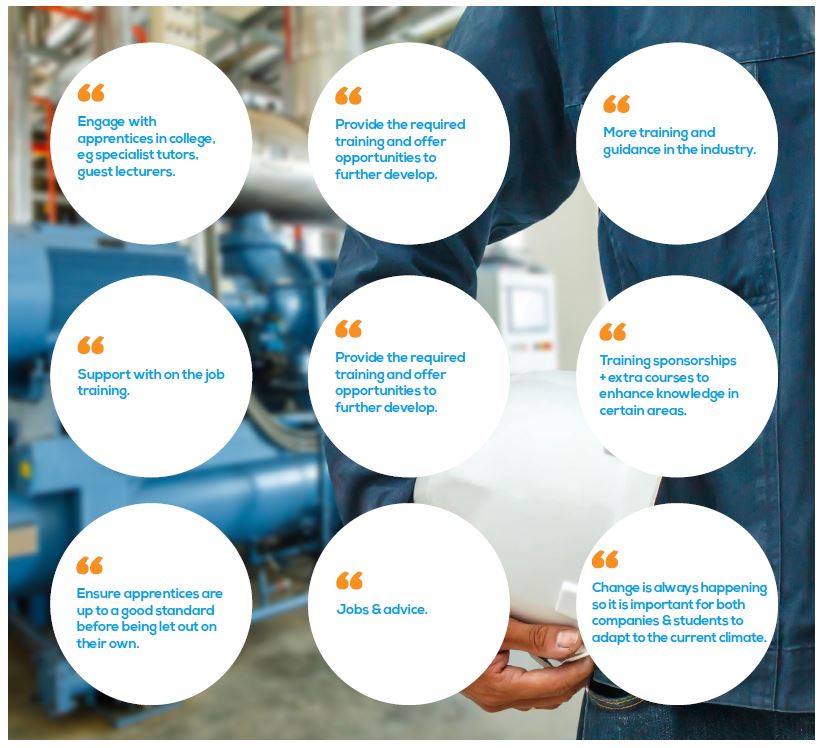Supporting the future of our industry 2021
Climalife UK
Here at Climalife, we recognise that the future of our industry lies with some of the younger members of our community and perhaps also some who have decided to retrain. Many of these people will be studying hard for upcoming qualifications, keen to make their first steps into the cooling industry and secure successful careers for themselves.

Mel Summers, Marketing Manager at Climalife discusses....
Following on from last year’s newsletter, we caught up again with Shaun Creech of Eastleigh College, plus Mark Denford of the Grimsby Institute and Mark Forsyth of WorldSkills UK – all three, key players in the provision of training to the RACHP sector and passionate about supporting students in achieving the very best that they can be.
Climalife has had the opportunity of supporting each of these training providers over recent years and continue to see the huge value that they bring to the future generation of the industry.
In this edition, we asked Shaun, Mark D and Mark F for their thoughts on how the industry can best support this next generation of engineers and some of the challenges faced when supporting and training newcomers to the industry.
We were also lucky enough to capture some feedback directly from the students themselves from Eastleigh College – you can read their comments below.
MS: What do you see as the biggest challenge(s) supporting and training newcomers to the industry?
SC: Firstly, the new apprenticeship standard is a massive challenge at present but it is being reviewed by the IOR / Employers group. Secondly, the pace at which our industry moves and knowing what sort of equipment to try and access for our students to work on going forward. It would be great to get more people from Industry to come and teach the students, and pass on some of their knowledge.
MD: The biggest challenge we see currently is refrigerant, with the phase down of higher GWPs and the options now available for retrofitting, more consideration must be taken especially zeotropic with higher glide values. We had moved from R-404A some time ago now choosing R-452A as its replacement but are now looking at replacing this with a much lower GWP value refrigerant.
We are keen on educating our apprentices early on in their apprenticeship with our slogan (Know your refrigerant, Know its Classification) as HFOs and HCs are becoming more widely used within our industry.
MF: SummitSkills produced a report some 25 years’ ago, looking at what holds back the development of our sector and the challenges when supporting and training newcomers to the RACHP industry. Recent feedback has been around making all the available roles attractive to higher grade students; ensuring employers actively invest in the workers development when in the workplace, and conversely; ensuring there is support where the pandemic has perhaps affected younger prospects emotionally.
MS: How can companies in the industry support colleges/training centres more?
SC: We are lucky as a college and do get support from various companies in the industry. We do however, like most colleges have lots of equipment that is very old and could do with updating so students are working on modern equipment with new up-to-date gases. It would be great for companies to come and look around colleges and see what their students are being taught on and for them to get involved with the IOR and ACRIB to help develop qualifications going forward.
MD: Companies can support in many ways, the biggest support is with the latest equipment / parts as this gives the apprentices a better understanding on the latest technology. Companies can also contribute to enrichment sessions either by teams or face to face which gives the apprentices a better understanding on how such products work and what they can obtain from it. Every little thing helps and helps us give the next generation of engineers the best on his/her start of their career within the industry.
MF: We must strive to achieve high quality through excellence in the delivery of training. This will come from an aligned industry spanning the training centres, the employers and the companies doing business within it. More training centres are now working with suppliers and manufacturers to equip centres in one way or another – all for the benefit of the students.
Product and financial support continues to be needed and appreciated, however this is just one part of the puzzle. If we wish to compete in the global skills market, we must ensure that we provide training where collaboration, innovation and trust work across the industry as a whole, to deliver quality through best practice, standards and modern methods of delivery. Excellence doesn’t just happen - it requires consistent change in the right direction and a thought for legacy.
The voice of the apprentices
We asked a group of apprentices / students at Eastleigh College for their thoughts on how established companies within the industry can best support them and their future careers. We were overwhelmed with the response – so much enthusiasm and yearning for more knowledge. We hand the remainder of this page over to just a few of those voices…


